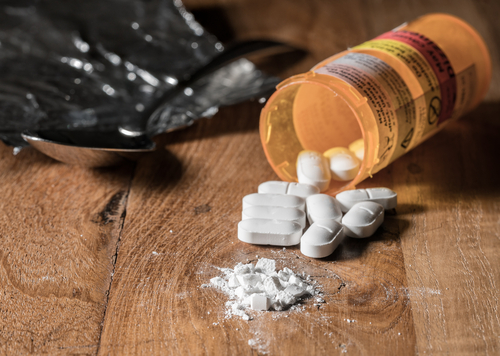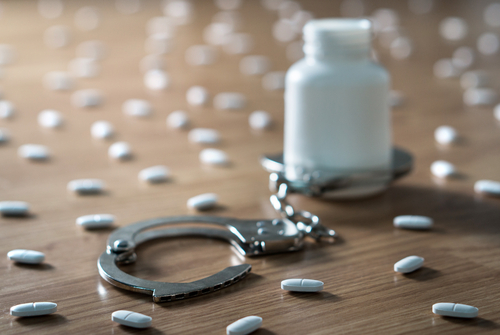Hydrocodone, also known as Vicodin or Norco, is a prescription opioid painkiller used to relieve moderate to severe pain. Hydrocodone is intended to be taken orally, and snorting it can have potentially dangerous consequences. These consequences can affect an individual’s physical and mental health and lead to overdosing, which can be fatal.
In this article, we will cover the effects of hydrocodone, the consequences of snorting hydrocodone, what hydrocodone addiction entails, and addiction treatment options.
What is Hydrocodone?
Hydrocodone is a potent opioid pain medication that relieves moderate to severe pain. It is a semi-synthetic drug derived from codeine and is classified as a Schedule II controlled substance by the DEA due to its high potential for abuse and addiction. Hydrocodone is taken in various forms, including tablets, capsules, and syrups, and it is often prescribed as a combination product with acetaminophen or ibuprofen to enhance its pain-relieving effects.
Hydrocodone binds to the opioid receptors in the central nervous system, blocking pain perception and producing euphoria and relaxation. While hydrocodone is used to treat pain, many people abuse the substance by taking it recreationally, leading to some dangerous side effects of using hydrocodone.
Effects of Using Hydrocodone
The significant risk of substance abuse associated with hydrocodone use has become a rising public health issue. Nonetheless, comprehending the effects of hydrocodone on the body can assist in determining whether it is appropriate to use this medication. Here are some of the effects of using hydrocodone:
- Drowsiness: Hydrocodone can cause drowsiness and sedation, impair judgment, slow reaction times, and increase the risk of accidents.
- Constipation: Hydrocodone can cause constipation, leading to abdominal discomfort, bloating, and other gastrointestinal problems.
- Nausea and vomiting: Hydrocodone can cause nausea and vomiting, leading to dehydration.
- Respiratory issues: Hydrocodone can slow down the central nervous system, leading to shallow breathing, respiratory depression, and potentially fatal consequences, especially when taken in high doses or with other drugs that cause respiratory problems.
- Addiction and dependence: Hydrocodone has a high potential for abuse and addiction, leading to physical and psychological dependence, withdrawal symptoms, and the need for professional treatment.

Can You Snort Hydrocodone?
Hydrocodone is intended to be taken orally, so snorting it can have potentially dangerous consequences. Snorting hydrocodone involves crushing the pills into a fine powder and inhaling it through the nose. This process is called intranasal hydrocodone use or insufflation. When hydrocodone is snorted, the drug bypasses the digestive system and goes directly to the bloodstream, resulting in a quicker onset of the drug’s effects.
Consequences of Snorting Hydrocodone
Snorting hydrocodone is an illegal and unsafe way of using the drug. The effects of snorting hydrocodone are intense and immediate since the drug goes directly into the bloodstream. Here are some of the consequences of snorting hydrocodone:
- Nasal damage: Snorting hydrocodone can cause damage to the nasal mucosa, leading to inflammation, bleeding, and other nasal problems. Chronic snorting can cause severe damage to the nasal tissues, leading to chronic sinusitis, nasal deformities, or even loss of smell.
- Lung damage: Snorting hydrocodone can cause the drug to enter the lungs, leading to respiratory problems such as lung infections, pneumonia, or bronchitis. This can be especially dangerous for those with pre-existing respiratory conditions, such as asthma or chronic obstructive pulmonary disease (COPD).
- Increased risk of overdose: Snorting hydrocodone can lead to a higher drug concentration in the bloodstream, increasing the risk of overdose and potentially fatal consequences such as respiratory depression or cardiac arrest. A hydrocodone overdose can cause severe damage to the organs, leading to brain damage or even death.
In addition to these consequences, snorting hydrocodone can also cause the same side effects as other forms of hydrocodone use, such as constipation, nausea, drowsiness, and dizziness. It is essential to take hydrocodone only as directed by a licensed healthcare provider and to follow the recommended dosages to avoid these consequences and potential hydrocodone addiction.
Hydrocodone Addiction
Hydrocodone addiction is a severe and life-threatening condition that can develop over long periods of drug abuse. Hydrocodone abuse can develop quickly due to the drug’s effects on the body, leading to an individual becoming dependent on the drug use. Some signs and symptoms of hydrocodone addiction include:
- The inability to control or limit hydrocodone use
- A preoccupation with obtaining and using hydrocodone
- Increasing the dosage or frequency of hydrocodone use to achieve the desired effects
- Continuing to use hydrocodone despite the negative consequences
- Withdrawal symptoms when hydrocodone use is stopped
Hydrocodone addiction can have severe consequences, including physical and psychological harm, financial and legal issues, and strained relationships with loved ones. It’s essential to learn the sign of addiction as early as possible to have the best chance at recovery.

Hydrocodone Withdrawal Symptoms
Hydrocodone withdrawal symptoms can be challenging and uncomfortable to experience. They occur when an individual has become physically dependent on the drug and stops using it abruptly or reduces the dosage too quickly. Withdrawal symptoms can vary in intensity and duration, depending on the level of hydrocodone use and the length of the drug used. Some common withdrawal symptoms of hydrocodone are:
- Muscle aches and pains
- Sweating and chills
- Headaches
- Nausea and vomiting
- Difficulties focusing and concentrating
- High blood pressure
- Anxiety and depression
- Fatigue and difficulties sleeping
- Thoughts of suicide
Hydrocodone Addiction Treatment
Hydrocodone addiction is a complex and challenging condition, but effective treatment makes recovery possible. Treatment for hydrocodone addiction typically involves medical detoxification, followed by counseling, therapy, and support groups to address the underlying causes of addiction and to help individuals learn how to cope with triggers and cravings. Knowing and understanding the treatment options available for hydrocodone and opioid addiction can guide you toward the path of recovery.
Addiction Treatment Options
As stated above, treatment plans for hydrocodone addiction typically involve medical detox with counseling, therapy, and support services. There is no one way to treat drug addiction, but here are some treatment options available:
- Inpatient treatment: Inpatient treatment involves staying at a residential facility or treatment center while receiving intensive addiction treatment. This can include counseling, therapy, medical detox, and other forms of treatment.
- Outpatient treatment: Outpatient treatment is a less intensive form of addiction treatment that allows individuals to receive treatment while living at home. Outpatient treatment can benefit individuals with mild to moderate addiction or those with work or family commitments.
- Medication-assisted treatment (MAT): MAT combines medication and behavioral therapy to treat addiction. MAT is commonly used for opioid and alcohol addiction and involves using medication to manage withdrawal symptoms and cravings
- Support Services: Support groups provide a safe and supportive environment for individuals in recovery to share their experiences, offer and receive encouragement and support, and learn from each other. Common support groups for addiction include Alcoholics Anonymous (AA) and Narcotics Anonymous (NA).

Opioid Addiction Treatment at East Coast Recovery Center
At East Coast Recovery Center in Boston, Massachusetts, we understand the challenges of addiction and have a comprehensive and holistic approach to individualized care for opioid addiction. East Coast Recovery is a reputable addiction treatment center offering addiction treatment programs tailored to each individual’s needs and dedicated to providing you with the best care possible.
If you or a loved one is stumbling with addiction, know you are not alone. Recovery is possible, and resources are available to help you. Contact us today if you want more details on our treatment options or to speak with one of our admissions counselors.











